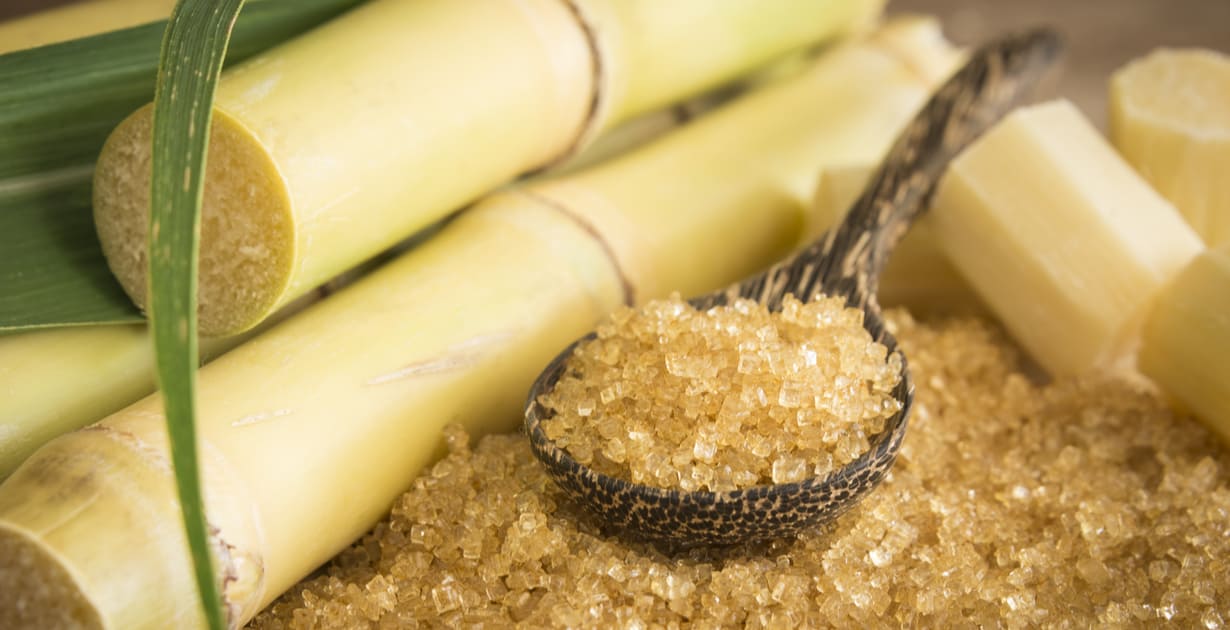How Sugar and Cane Are Used in the Production of Natural Sweeteners
How Sugar and Cane Are Used in the Production of Natural Sweeteners
Blog Article
Why Cane Sugar Processing Chemicals Are Critical for Modern Sugar Refining
The duty of cane sugar processing chemicals in modern sugar refining can not be overstated, as they are essential to improving both the effectiveness of removal and the overall quality of the end product. Agents such as phosphoric acid and details flocculants are used to get rid of contaminations, leading to sugar that not just meets consumer expectations but also sticks to market standards. The ramifications of these chemicals extend beyond high quality, touching upon market dynamics and ecological factors to consider. sugar and cane. This raises essential concerns about the sustainability of such techniques and their influence on the future of sugar production.
Role of Processing Chemicals
The efficacy of walking cane sugar handling pivots considerably on the strategic application of handling chemicals. These chemicals play an essential duty in enhancing the performance and high quality of sugar extraction and refining. From the initial phases of juice extraction to the last filtration actions, processing chemicals facilitate numerous vital operations.
In the extraction phase, chemicals such as phosphoric acid and calcium hydroxide are utilized to maximize the clarification procedure, assisting to remove pollutants and put on hold solids from the cane juice. This not only enhances the return however also makes sure the quality of the end product. Furthermore, agents like flocculants help in the fast settling of contaminations, thereby simplifying the total procedure.
Turned on carbon and ion exchange materials serve to get rid of shade and odor, guaranteeing that the polished sugar meets customer quality criteria. Thus, the thorough selection and application of these chemicals are vital for accomplishing ideal outcomes in walking cane sugar processing.
Key Kinds Of Chemicals
Walking stick sugar handling relies upon a selection of crucial chemicals that promote each phase of production. These chemicals play necessary duties in clarifying, lightening, and cleansing the sugar removed from walking stick.
One main group of chemicals includes flocculants, such as polyacrylamide, which aid in the explanation procedure by advertising the gathering and settling of contaminations. In addition, calcium hydroxide is frequently utilized to counteract level of acidity and help in the removal of non-sugar components.
Bleaching agents, such as triggered carbon and sulfur dioxide, are made use of to decolorize the syrup, resulting in a clearer last item. These chemicals assist get rid of color compounds that might affect the sugar's appearance and bankability.
Moreover, phosphoric acid acts as a pH regulator during the processing phases, guaranteeing ideal conditions for the enzymatic activities included in sugar removal and purification.
Other essential representatives include edta (ethylenediaminetetraacetic acid), which chelates steel ions that could catalyze unwanted reactions, and sodium hydroxide, which assists in pH control throughout the refining process. Collectively, these chemicals enhance efficiency and guarantee a top quality cane sugar item.
Benefits for Sugar High Quality
Frequently ignored, making use of certain handling chemicals dramatically enhances the general quality of walking stick sugar. These chemicals play a crucial role in refining processes, making sure that the last item satisfies stringent industry requirements for pureness and taste.

In addition, refining chemicals aid in accomplishing a consistent granulation and appearance, which are essential for consumer approval. By controlling the crystallization process, these chemicals guarantee that the sugar crystals develop evenly, leading to a much more appealing product that liquifies well in numerous applications.
Additionally, the use of these chemicals can improve the life span of walking stick sugar by lessening moisture absorption and microbial growth. On the whole, the tactical application of handling chemicals is necessary for delivering high-grade walking cane sugar that meets consumer expectations and sector demands.
Ecological Effect Considerations

Moreover, the energy-intensive nature of sugar refining, intensified by chemical usage, typically try this web-site leads to enhanced carbon emissions. This adds to climate modification and elevates problems relating to the sustainability of present refining techniques. Additionally, the sourcing of these chemicals may involve practices that endanger biodiversity, such as monoculture farming, which lowers the strength of agricultural ecosystems.

To mitigate these effects, sugar refiners are significantly checking out lasting alternatives and embracing best techniques that lessen chemical usage. Executing extensive environmental monitoring systems can assist ensure that the refining procedure aligns with environmental standards and promotes biodiversity. Ultimately, a balanced approach that prioritizes both sugar quality and ecological stewardship is crucial for the lasting practicality of the sugar industry.
Future Fads in Refining
As the sugar sector grapples with the ecological obstacles connected with typical refining approaches, cutting-edge approaches are emerging to enhance both effectiveness and sustainability. One significant trend is the adoption of environment-friendly chemistry principles, which focus on the usage of non-toxic, naturally degradable processing chemicals. This shift not only minimizes ecological influence however additionally addresses consumer demand for cleaner manufacturing techniques.
One more encouraging growth is the implementation of advanced purification modern technologies, such as membrane layer splitting up and adsorption procedures. These strategies enhance the clarity and top quality of the sugar while reducing the quantity of wastewater produced throughout refining. Furthermore, the assimilation of digital technologies, consisting of IoT and AI, is transforming functional performance by allowing real-time tracking and anticipating maintenance, therefore reducing source waste.
Furthermore, the use of byproducts from sugar refining, such as bagasse and molasses, is gaining grip. These materials can be transformed right into biofuels or value-added products, adding to a round economic climate within the industry. Collectively, these trends signal a change towards even more lasting techniques that not just enhance operational efficiency yet likewise align with international sustainability goals, ensuring the future feasibility of sugar refining.
Conclusion
Walking stick sugar processing chemicals are essential in modern-day sugar refining, considerably enhancing the effectiveness and top quality of sugar extraction. The calculated use these chemicals not just enhances the purity and flavor of the end product yet likewise makes sure constant formation and structure. As the market increasingly focuses on sustainability, the fostering of environmentally-friendly handling agents is most likely to form future trends in refining, ultimately causing greater high quality products and prolonged shelf life for consumers.
Inevitably, a well balanced strategy that focuses on both sugar quality and environmental stewardship is necessary for the long-lasting stability of the sugar sector.
Cane sugar handling chemicals are important in modern sugar refining, considerably boosting the performance and quality of sugar removal.
Report this page